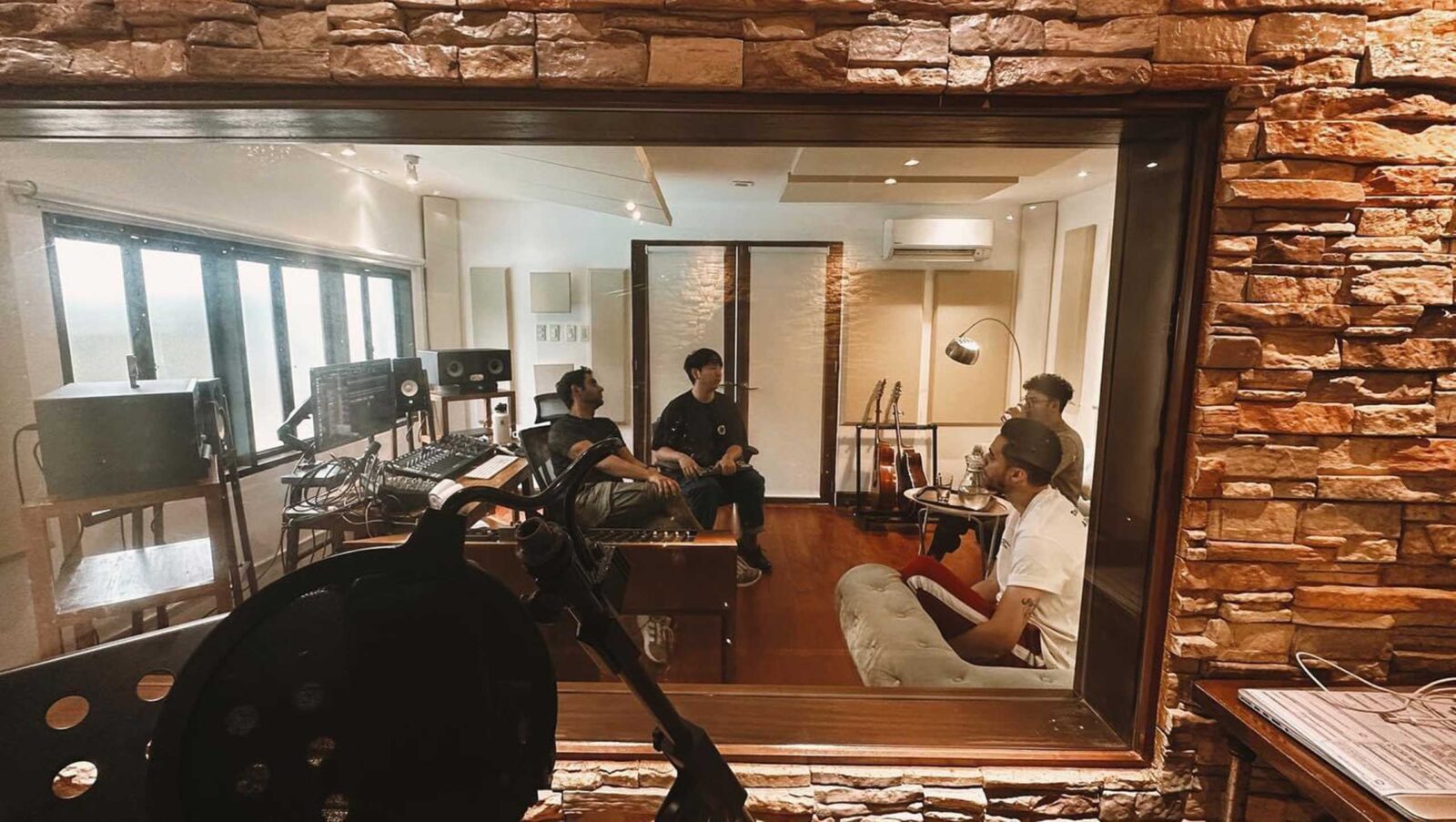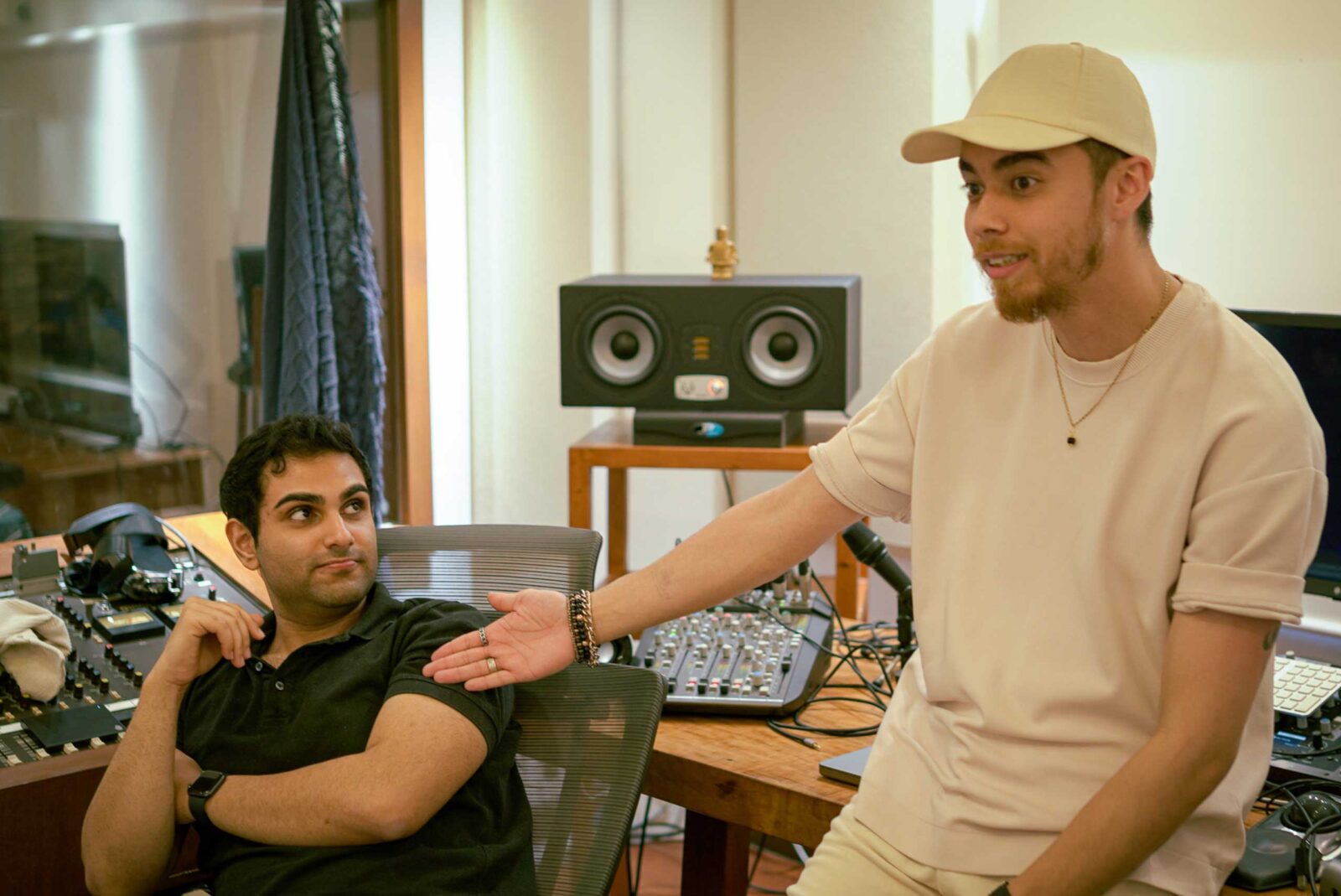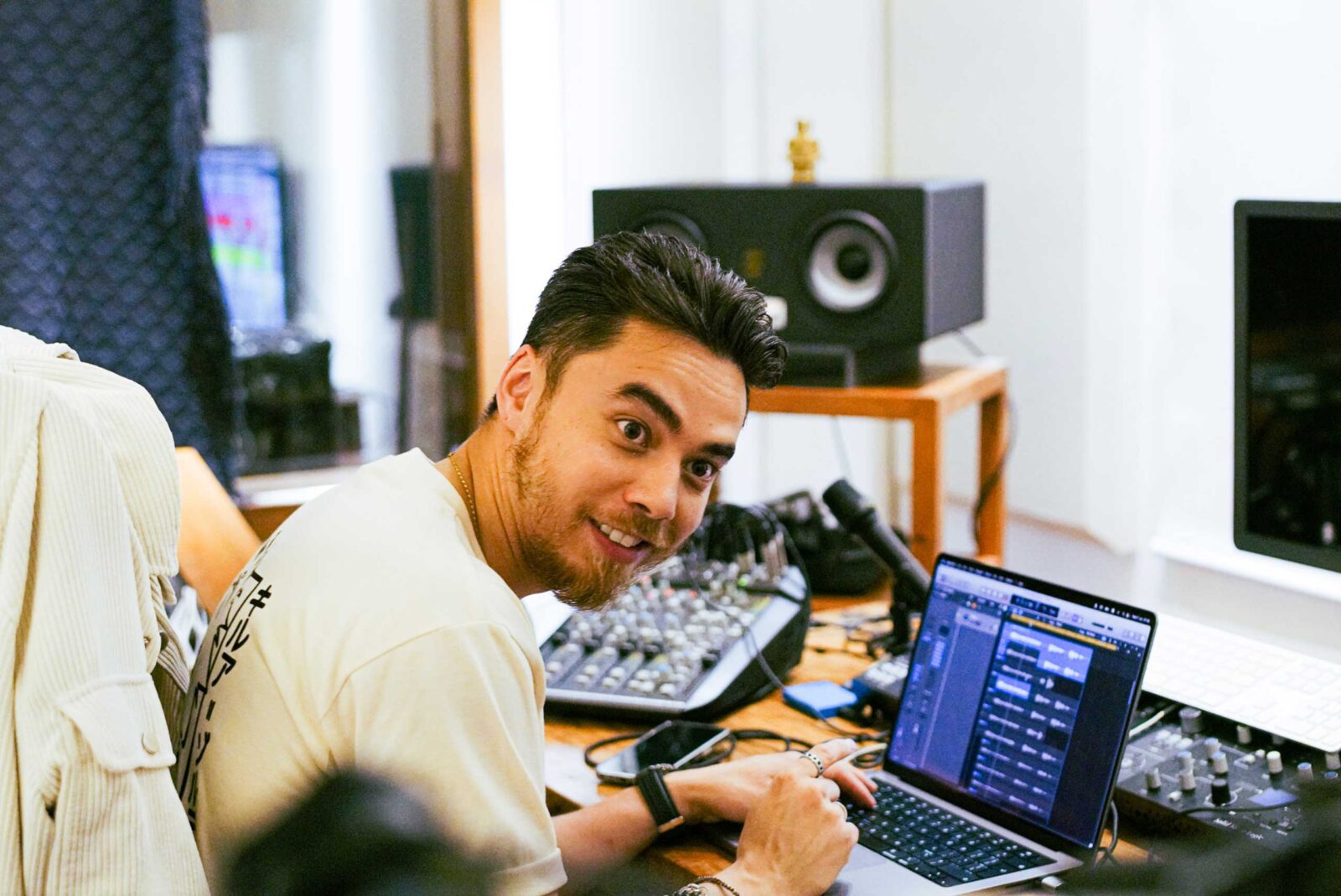Music As A Career: How To Make It In The Recording Industry When You Don’t Sing
Find out the different ways you can put your music passion into practice.

Photographed by Morissette, Nathaniel Peraleja, and Brandon Garcia. Courtesy of Line In Records
Photographed by Morissette, Nathaniel Peraleja, and Brandon Garcia. Courtesy of Line In Records
Mark Twain famously said people will never have to work a day in their life if they find a job they enjoy doing. While his quote was probably not meant to be taken literally, work is work.
A career means long, sometimes insufferable hours of dedication to the craft. Even with the dream job, one has to still put in the work during and especially before, if they want to land such an opportunity to begin with. This applies as well to the music industry, which is built on people’s passion for the sonic art form. One has to prove themselves before they can even land any music-related job.
Fortunately, there is a way to break into the music scene. One just needs to possess the proper will to do it right. Billboard Philippines spoke to Line In Records founder Nikhil Amarnani and The Soundhouse co-founder Xerxes Bakker to learn how one can find non-singing job opportunities in the recording industry. Consider the following insider insights to help you kickstart your own music career.

Photographed by Morissette, Nathaniel Peraleja, and Brandon Garcia. Courtesy of Line In Records
Find something you like
It all starts with knowing what you like. This has two meanings: finding a job you can actually see yourself doing and then personally determining how you like things to be done in that particular field.
Saying you want a “music career” is too broad as that umbrella term covers over a hundred distinct though intersecting roles. “There’s actually a lot. It’s a whole pool of work,” Amarnani prefaced.
On the management side, he listed the A&R (artists and repertoire), managing director, managers, road managers with the artist, consultant A&Rs, and A&R assistants. “And that’s in the label side alone,” Amarnani added.
Meanwhile, the marketing world spans record label marketing, music marketing, and the finance department, among others. This is to be distinguished from the publishing industry, which likewise has scores of roles encompassing editorial (editors, writers, art directors, artists, photographers, contributors), multimedia (producers and production crew), and advertising (account managers and implementers).
“The other side of it in our spectrum of the music industry, you have producers, mix engineers, mastering engineers, recording engineers, runners, assistant engineers, vocal editors,” said Amarnani, who is chief mix engineer of both Line In Records and The Soundhouse.
For music-related careers, Bakker added songwriters and creative directors, both of which he works as at The Soundhouse aside from his role as head producer.

Photographed by Morissette, Nathaniel Peraleja, and Brandon Garcia. Courtesy of Line In Records
The aforementioned music production and songwriting group “blending international quality with Philippine heritage” has also hired a legal department, creative administration support, and an intern to do song and release data analysis.
“There are so many ways to get into the music [industry],” Bakker said. “What we are also really trying to tell everybody constantly, it starts with you. We’re not an entity that [says], ‘Come to us, you’ll get a job, we pay you, and that’s it.’ No, it’s your career. Take care of your career.”
The Awit Award-winning producer said entering the music industry is not about getting a college degree only to land a minimum-wage gig. “There’s not like ‘I go to Harvard and I’ll be a lawyer’. Like there in the music industry or the entertainment industry. There is [no baseline]. You can go to music school, but that doesn’t mean you’re going to be a successful producer or songwriter.”
Rather, Bakker said one is free to carve out their own path to their dream job that might not even have an opening at the moment. “You can grow into so much more than just an employee. You can make more money, you can have your own business later… Have a vision that’s to elevate and try to let it be known that you can have a sustainable career, but it’s your career… You have to take it, grab it with both hands, and run with it.”
Put yourself out there
The next step is to let the world know you exist. Assuming you do bring something to the table, be it talent, connections, or work ethic — put it to good use in the real world.
One cannot develop their career without going out to try new things and meet new people, more so when you are a total beginner. If you are starting from zero, it makes all the more sense that you continually seek learning and networking opportunities.
Amarnani, for instance, was already on a mission before moving back to the Philippines to “push the boundaries of modern production” with Line In Records. He finished top of his class studying Audio Production at Lasalle College of the Arts Singapore but did not stop there knowing academics alone won’t impress anyone.
The recording/mixing engineer built his portfolio and presence through interning as well as assisting work around studios in Singapore. Now he’s on track to the top by liaising with major labels such as Universal Music Group Philippines and Warner Music Philippines.

Photographed by Morissette, Nathaniel Peraleja, and Brandon Garcia. Courtesy of Line In Records
“Talent is very important… Hard work as well,” Amarnani raised. “For me, another thing that is kind of on the same level is attitude. So even when I hire people…it’s your drive that’s very important. How driven you are. Because you can be talented, but then you can also sometimes be a slob, right?”
Naturally, one’s work ethic, or lack thereof, will eventually show. This is why attitude can become a dealbreaker even when one seemingly knows how to do the job, but is inconvenient to everyone working around them.
“Because sometimes you’re going to have talented people who are really, really amazing. But they are either very pessimistic about their craft or they’re not super passionate about it. So it becomes harder to work with a person in that sense.”
Then there is the matter of expanding one’s horizon. You cannot land big-ticket, high-profile gigs without the industry connections behind them. First, you need to meet these people one way or another and establish a working relationship with them, something that would take their notice.
“You’re going to see some people who are very, very talented but aren’t getting anywhere because their connection base is not tight. So it’s very important to know certain people. It is very important to connect, to network…to put yourself out there. Because [regardless] how talented you are, if you don’t [network], nothing’s going to happen to your career,” Amarnani advised.
Ultimately, one just needs to get out of their own head. Stop worrying and start working. Why daydream when you can be living the dream already? “If you don’t basically show yourself or tell yourself that you’re doing it, then nobody knows. It just stays in your head,” Bakker punctuated.

Photographed by Morissette, Nathaniel Peraleja, and Brandon Garcia. Courtesy of Line In Records
Know your worth
From there, what’s left to do is to profit. You are free to get your bag once you have put in all the effort of training and networking. Of course, you can just as easily be shortchanged for all your hard work. That is why the final requisite is to know your worth.
The labor pool within the music industry is already competitive. It will come to the point that your unique selling point is not what you can do, nor who you know, but who you are.
“Always sounds so cliché, but be you and seek who you are and what you can do best,” Bakker recommended. “Because everybody can be a great producer, a great songwriter, a great mix engineer, a great writer for Billboard. Honestly, because there are a lot of talented people in the world. But why did they choose you? Because there’s something special about you…If you have that, cherish that, put the 10,000 hours in.”
As for professional weaknesses, be prepared to work on them. If you think that is impossible, an alternative is to offset your flaw by being exceptionally talented in another aspect. “Talent will always rise, will always be above,” Bakker said.
He gave as an example a producer at The Soundhouse who was socially “closed” to the point of being unable to network but went far because of their dependable skill and work ethic, all the foundations to succeed. “You can still make it… Just know your strengths and weaknesses.”

Photographed by Morissette, Nathaniel Peraleja, and Brandon Garcia. Courtesy of Line In Records
On a practical note, Bakker mentioned how there are many missed opportunities among Filipino music professionals when it comes to earning from their work. “Like there is so much…money in the air, and people are not connecting it basically.” Specifically, he encountered many musicians who didn’t know they were entitled to publishing fees.
“I can say it as a producer-songwriter because that’s how I also earned and earn my money… I always say it’s the three lanes of making money.” The first is a flat fee you can ask for writing or producing a song, while the other two income streams are copyright and royalty revenues.
“Copyright is if you’re a songwriter and you own copyright to a song. So if you wrote a melody or wrote a lyric on a song, you’re entitled to copyright… It’s the same with royalty. If you own a little piece of the sound that you hear as a producer and mostly you own that or as an artist because you have your voice on a song, then you’re entitled also to royalties… Every three, six months you’ll earn some.” The bigger the hit, the bigger the profit.
One can also multiply their streams of income by handling smaller tasks, as not every role in the music industry is a full-time work setup. Many are part-time or freelance gigs that demand relatively less time to the point where one can take on multiple “little jobs”: mixing, editing, producing, and the like.
“So definitely try to create opportunities, always try to create opportunities,” Bakker concluded. “Go to the network parties… Just do it, definitely. But do it when you have your own momentum, if you know what I mean because otherwise, you’re just one of the producers, songwriters, and mix engineers that everybody can be. That’s how I see it always.”